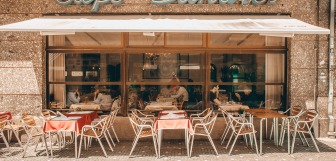Pros and Cons of Charging a Public Holiday Surcharge
It’s a controversial topic that pops up every time a public holiday rolls around: Should cafes and restaurants charge customers a surcharge on public holidays?
One negative is that customers generally complain about the price inflation seen on these occasions, and will sometimes boycott your establishment if they see an applicable surcharge.
However, levying a surcharge on public holidays is common practice in the food industry. The surcharge goes towards the additional operating costs that come with opening a venue on a public holiday, including the higher wage costs.
Why charge a public holiday surcharge?
For most businesses, adding a surcharge on public holidays and Sundays is a simple way to account for the penalty rates applicable on those days. The surcharge can also serve as a way to pass on the extra operating expenses that can add up if business is slower.
The penalty rates for hospitality workers on public holidays can range from 200% - 250% of their regular wage. When these costs are factored in, your business could instantly be running at a loss when it opens on a holiday.
Legally, cafes and restaurants are allowed to charge a surcharge as long as they clearly inform their customers.
The ACCC website outlines the rules here:
Restaurants, cafes and bistros that charge a surcharge on certain days do not need to provide a separate menu or price list or have a separate price column with the surcharge factored in. However, the menu must include the words 'a surcharge of [percentage] applies on [the specified day or days]' and these words must be displayed at least as prominently as the most prominent price on the menu.
If the menu does not have prices listed, these words must be displayed in a way that is conspicuous and visible to a reader. These measures apply to pricing for both food and beverages.
Why you should waive the surcharge
Customer feedback is what your business relies on, so risking a backlash is the greatest drawback of having a public holiday surcharge. While some customers may understand why restaurants have to charge extra, it doesn’t mean they are willing to pay it.
The challenge is that some customers are more inclined to complain if you close down completely on these days. Which means the answer is to open without a surcharge and simply wear the cost. The advantage of this is it could potentially help you attract more customers, but this is not a given.
Another reason to not implement a surcharge is competition. If you operate in an area that is populated with other restaurants and cafes who don’t charge a surcharge you may need to follow suit. Those businesses may be foregoing the surcharge completely in the hopes of picking up those customers who are not willing to pay.
Is there an alternative to adding a surcharge?
No matter what, operating costs will always be higher on public holidays because of the penalty rates you have to pay your staff.
So, if you want to implement a Public Holiday Surcharge on your Epos Now System Click here.
If you’re looking to opt out of charging this surcharge, you may be better off evaluating the public holidays and only opening on the days when your restaurant will still be busy.
Another option is to raise your menu pricing by using a yearly pricing strategy. This will allow you to build the staff penalty rates into your everyday pricing and spread it across the entire year.
In many cases, a review of your restaurant's sales data will help you decide the best way to approach a public holiday. If you have been open a while, then looking over past sales reports will give you a great starting point.
TIP: Check out the Epos Now 8 functional report guide.
Epos Now Hospitality POS system can help you to effectively manage your venue. With powerful, in built reporting capabilities you will be able to make decisions with data to back it up.
Speak with a consultant if you would like to learn more.



